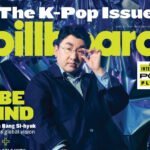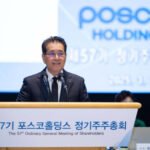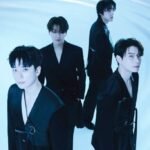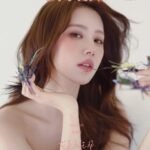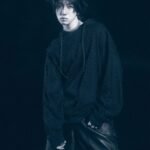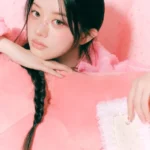ara‘s My lost love diary arrives three years after her first single. So I’m not sure where she is in her career. And considering the EP, ara has a style in mind but hasn’t cemented her vision because My lost love diary is an exploration of ideas. It’s not bad at all, but you’ve heard all these styles before.
“Looking at you” is a standard indie folk pop single. It flows through a comfortable melody and ara sounds like she’s been in this genre for a long time. There’s nothing to complain about but it also doesn’t have the power to stay in your head.
“I saw a pretty woman” follows a similar construction but this time it leans more toward pop. Like “Looking at you,” “I saw a pretty woman” has no complaints but passes by like the breeze.
“the day it’s going to rain” is a little more interesting. The instrumental contains more variety and articulated melodies. Jiwon Han‘s feature is take-it-or-leave-it. Nothing really special here. The flow-by-the-numbers is an alright movement through the bridge.
“Confession of love” takes 80s disco and 70s funk and mixes them together. This is the first time I have heard something interesting from ara. I don’t think this is the genre she should stick with, but it’s the first time you hear a little more from her in a performance even though it has a slightly more submissive expression.
Closing My lost love diary, “Scent I shouldn’t left him” is a slow tempo sugar pop ballad. It’s a strong track that adds some needed variety into the EP.
Overall, My lost love diary has a lot of standard genre songs that don’t make an impact but sound more like practice for ara. It doesn’t feel like she’s confident in any specific genre even though her vocals have the ability to mold to the style. I think she’s holding a lot of potential that’s not being displayed.
Instagram | YouTube | Apple Music | Spotify | YouTube Music
Written by Chris P for Korean Indie.




